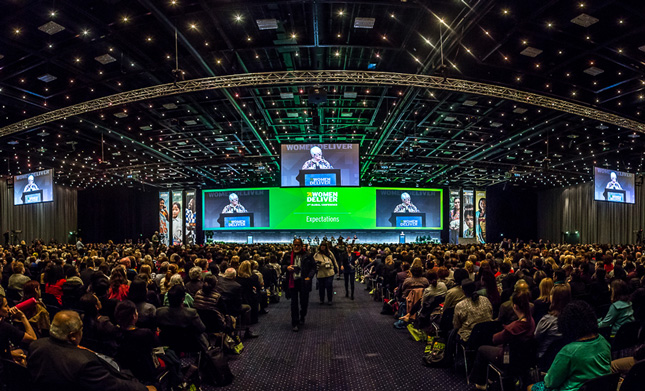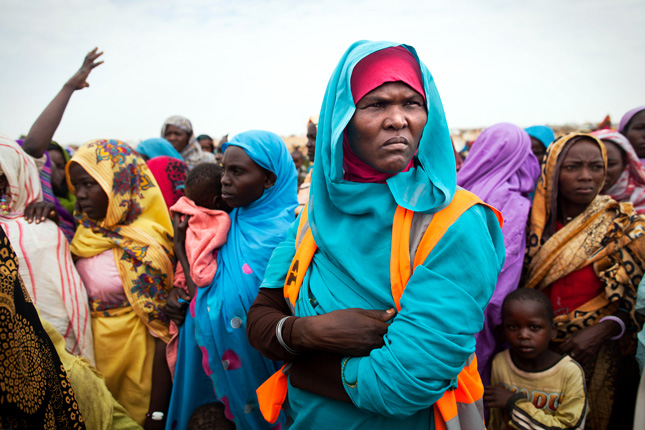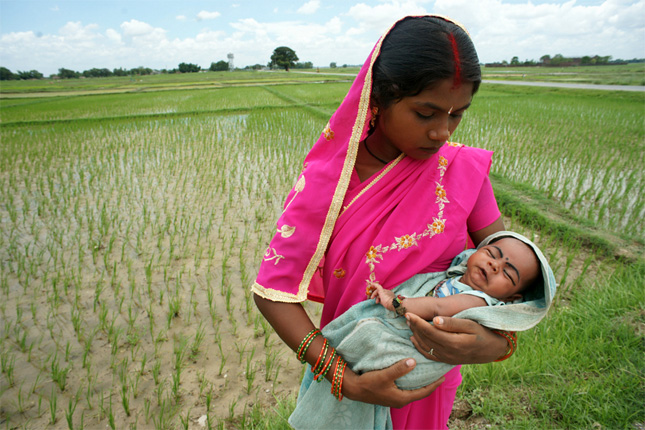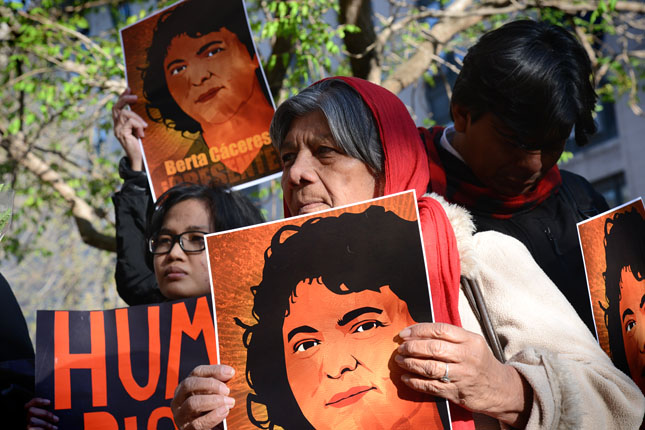-
Candido Pastor, Human Nature
From Machetes to Maps: How a “Red Line” Eased Conflict in Bolivia’s Amazon
›August 24, 2016 // By Wilson Center StaffI remember the first time I made the four-day trek into the heart of Bolivia’s Carrasco National Park (CNP) 12 years ago like it was yesterday. I knew it would be a challenge to help communities agree on the boundaries of the protected area, given the high level of tension between indigenous communities, illegal migrant farmers, and park authorities over land rights, but I was unprepared for just how intense our first meeting would be.
-
After Women Deliver, What’s Next for Women and Girls?
›
The once-every-three-years Women Deliver conference has become a major coalescing force for various global health and development efforts aimed at women and girls. “We operate at a global level, influencing the agenda” by focusing on the “four Cs”: convening, communicating, capacity-building, and catalyzing, said Susan Papp, director of policy and advocacy for Women Deliver. [Video Below]
-
At the Eye of the Storm: Women and Climate Change
›
Struggling to save their failing crops. Walking farther afield to fetch clean water. Protecting their families from devastating storms and violent conflicts. “Women are usually the support systems for our family…we are the last to leave in the event of a catastrophe, which is why women and families are disproportionately hurt by climate catastrophes,” said Wilson Center President, Director, and CEO Jane Harman on June 23 during a conference on women and climate change. [Video Below]
-
Family Planning and Environmental Sustainability: Assessing the Evidence
›
“There are truly global-scale environmental challenges, and they need to be dealt with by thinking of solutions at the same scale,” said Thomas Lovejoy, a senior fellow at the United Nations Foundation, at the Wilson Center on June 29. The interaction between human population and environmental degradation is one of these challenges. [Video Below]
-
Maternal and Fetal Health Implications of Zika in the United States
›Maternal and fetal health is at the forefront of concerns about the spread of Zika. The fetal brain defects known to be linked to the virus are devastating – and may only be the tip of the iceberg in terms of the virus’s impact, according to a panel of high level U.S. government officials speaking at the Wilson Center on May 24.
-
A Matter of Perspective: Astronaut Susan Helms on Seeing Humanity’s Impact From Space
›Susan Helms is a former NASA astronaut and retired member of the United States Air Force. During her time in the military, Helms flew over 30 different types of aircraft and received four Legion of Merit awards and three Defense Superior Service medals. She also holds the record for longest space walk and spent over 5,000 hours in space. She retired in 2014 with the rank of lieutenant general and now serves on the Wilson Center Board of Trustees. What did she learn over the course of such a distinguished career, much of it spent miles above the ground?
-
Human Rights and the Environment: How Do We Do Better?
›
2015 was a deadly year for environmental activism. According to Global Witness, 185 activists were killed, a 60 percent increase from 2014. Of the victims, 40 percent were indigenous people, like Berta Cáceres, who spoke at the Wilson Center last year and was shot and killed in her home in Honduras this March. [Video Below]
-
HoPE for Sustainable Development: Results From an Integrated Approach in East Africa
›
The Sustainable Development Goals (SDGs) are an ambitious framework for reducing poverty and improving the lives of billions of people. They were agreed to last year by governments at the United Nations and cover developing and developed countries alike. But how will governments, NGOs, and other organizations go about actually accomplishing them over the next 15 years? [Video Below]
Showing posts from category video.








